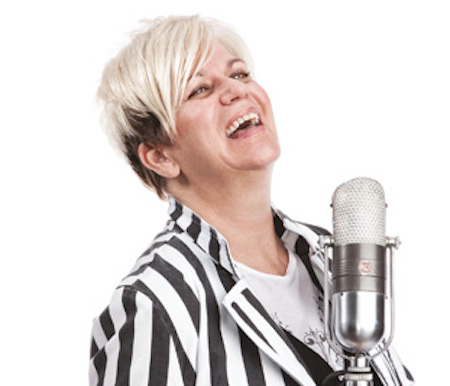Kellye Gray was excited to be playing her first gig in New York City. It’s a career milestone for any young performer and the jazz singer from Texas couldn’t have been happier when she found herself on that Big Apple stage in the mid-1990s.
She performed. The audience loved it. She was on a high. Then she got paid. “I turned to my friends and I was like ‘75 bucks? But this is New York.’ they said, ‘Yes, and you should be thankful you got 75 bucks.’”
It was a big moment for Gray – when she came to terms with the fact that money wasn’t a reason to play. She was playing for the love of the music.
“For me jazz is this amazing musical expression,” Gray says. “I’ve always been inspired by the greats like Ella Fitzgerald, Louis Armstrong and miles Davis and some of my other favorites who I later learned were lesbians!”
Gray got her start in Austin where she was a staple in the local music scene in the 1980s, performing with her band the KGB (Kellye Gray Band) as often as seven nights a week. The KGB had a strong fan base among both gay and straight jazz lovers, according to Gray, who was planting the roots of a career as a jazz singer-songwriter.
After moving to Houston, Gray cut her first CD in 1990. She continued to record, touring all over the world and developing a following that transcended barriers. Gray has played everywhere from intimate Texas lounges to a venue of more than 2,000 in Slovakia. She’s sold tens of thousands of CDs and two of her releases made it to the top 20 on the jazz charts.
In 2001, Gray returned to Austin to be closer to family, determined to make this her permanent home. “I’ve just now really gotten to a point in my career where I can stop being on the road all the time and actually focus on what’s going on in Austin,” she says.
A veritable one- woman crusade for jazz in Texas’ Capital City, Gray says she would like to see a greater appreciation for jazz in Austin and she’s trying to do her part to make that happen. She has an ongoing jazz residency at Sampaio’s Restaurant where she performs every Wednesday. But more importantly, she plans to create a jazz teaching institution based on her own philosophies on music, which she hopes to establish locally. She’s working now to line up grants and other funding for that initiative.
So what does Austin need? First of all, Gray says, venues. With only the Elephant Room on Congress Avenue to tout as a true jazz club, the city could stand to gain one or two more showcase venues. Certainly the popularity of jazz ebbs and flows through the years, but one thing that’s unavoidable, says Gray, is the aging of the audience for traditional jazz. That’s not to say a new generation can’t pick up a fresh version. “Jazz was originally pop music, the music of the moment,” she says. “It’s supposed to blend, to flow and evolve. And Austin with its young audiences, is a prime place to realize that evolution if we give it the proper infrastructure.”
Gray says while it’s great to tout Austin as the Live Music Capital of the World, plenty of struggling musicians does not a scene make but progress is being made. “There are a lot of people in this town working very hard to try and fix these issues,” she says. “Everyone from musicians to supporters are trying to make it a friendlier place.”




































